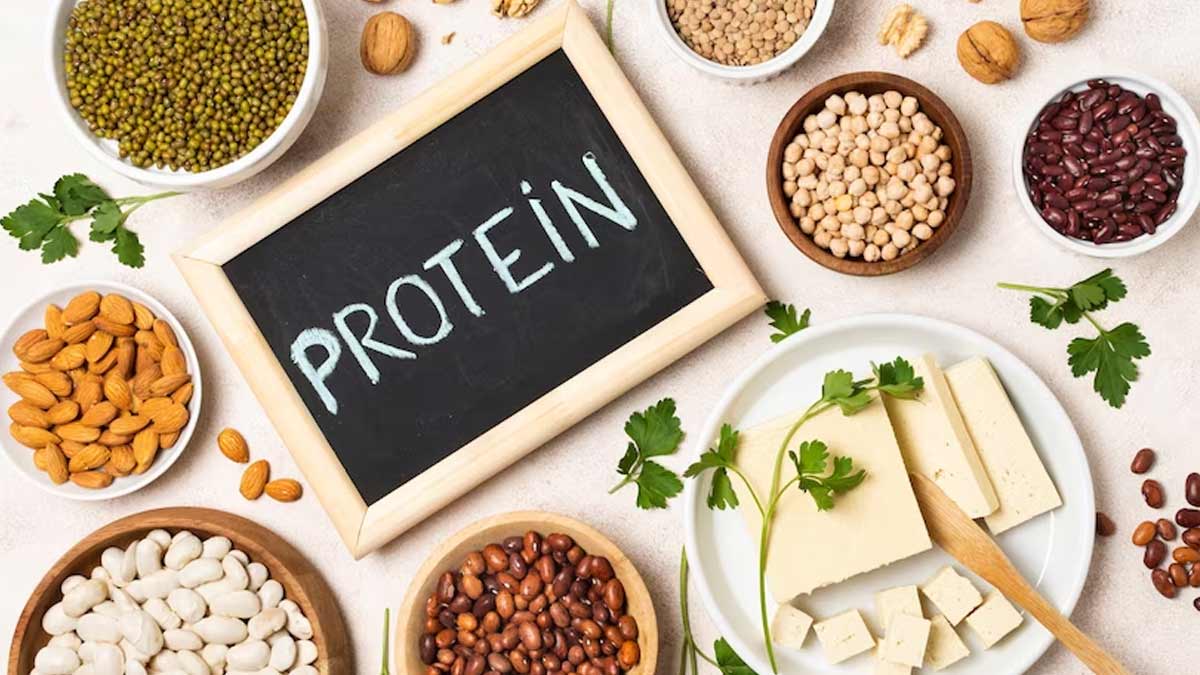
Protein deficiency is a serious health concern that can manifest in various signs and symptoms affecting multiple aspects of overall well-being. Understanding these indicators is crucial for timely intervention and prevention of further health complications.
Table of Content:-
Symptoms Of Protein Deficiency
We spoke to our expert Mayuri Rastogi, Assistant professor of Nutrition and Dietetics Department - Sharda University to shed some light on protein deficiency. Here are some key signs and symptoms, according to her.
1. Muscle Weakness and Wasting
Proteins serve as the building blocks for muscles, and inadequate intake can lead to muscle weakness and wasting. Individuals may notice a decline in muscle strength and mass, which can impact daily activities and physical performance.

2. Edema
Protein is essential for maintaining fluid balance in the body. A deficiency can result in fluid retention, leading to swelling in different parts of the body, particularly in the extremities such as the ankles, feet, and hands. This condition, known as edema, can cause discomfort and mobility issues.
3. Hair, Skin, and Nail Problems
Proteins play a vital role in the health and structure of hair, skin, and nails. Insufficient protein intake can lead to brittle hair, dry and flaky skin, and weak, easily breakable nails. These visible changes may indicate an underlying protein deficiency.
Also Read: Managing PCOD: Expert Shares the Importance of Diet and Exercise
4. Fatigue and Weakness
Proteins are involved in energy production and metabolism. Inadequate protein intake can result in feelings of fatigue and weakness as the body lacks the necessary fuel to sustain optimal function. Individuals may experience decreased energy levels and overall lethargy.

5. Delayed Wound Healing
Protein is crucial for tissue repair and wound healing. A deficiency in protein can impair the body's ability to heal wounds efficiently, leading to delayed recovery times. Slow healing wounds may be a sign of inadequate protein intake and should prompt further evaluation.
6. Weakened Immune System
Proteins play a crucial role in supporting the immune system's function. A deficiency in protein can weaken immune response, making individuals more susceptible to infections and illnesses. Frequent colds, flu, and other infections may indicate an impaired immune system due to protein deficiency.
7. Stunted Growth in Children
Protein is essential for growth and development, particularly during childhood and adolescence. Inadequate protein intake during these critical stages can lead to stunted growth and development delays. Children may exhibit slower growth rates compared to their peers, indicating a potential protein deficiency.
Also Read: Expert Lists Down Top 5 Nutrient-Packed Dals for a Healthy Pregnancy
8. Frequent Illnesses
A weakened immune system resulting from protein deficiency can increase the risk of frequent illnesses and infections. Individuals may experience recurrent infections, such as respiratory infections, urinary tract infections, and gastrointestinal illnesses, due to compromised immune function.
9. Difficulty Maintaining or Gaining Muscle Mass
For individuals engaged in strength training or those requiring muscle repair, inadequate protein intake can hinder their ability to maintain or gain muscle mass. Despite efforts to exercise and build muscle, individuals may struggle to see progress due to insufficient protein consumption.
A Final Word
Recognising these signs and symptoms of protein deficiency is essential for prompt intervention through dietary adjustments or supplementation. Individuals experiencing these symptoms should consult with a healthcare professional for proper evaluation and guidance. A balanced diet rich in high-quality protein sources, such as lean meats, poultry, fish, eggs, dairy products, legumes, and nuts, is essential for meeting daily protein requirements and supporting overall health and well-being.
Also watch this video
How we keep this article up to date:
We work with experts and keep a close eye on the latest in health and wellness. Whenever there is a new research or helpful information, we update our articles with accurate and useful advice.
Current Version